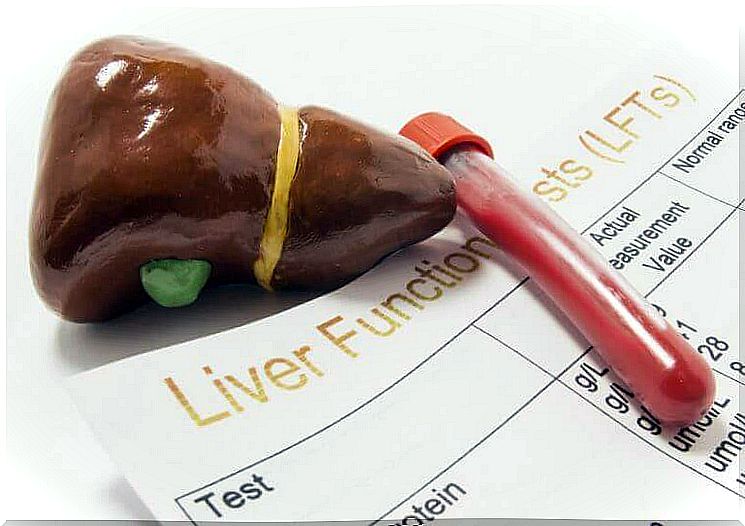Alkaline Phosphatase – 5 Reasons For Its High Level

Alkaline phosphatase is an enzyme found in most tissues in our body, but is mainly found in the liver. It is also found in the bile duct and bone tissue. Alkaline phosphatase is distributed in various forms, but it is known as an isoenzyme in the liver and bones.
All of this can be measured with a blood test if needed.
- Normal levels range from 30-14- UI / L
- When these levels are over the limit, a variety of health conditions can begin to manifest.
Alkaline phosphatase and 5 causes of its high level
1. Liver disease
Alkaline phosphatase can tell us something about the health of our liver. When its levels fluctuate, it can contribute to various liver diseases.
This is the case, for example, in the case of viral hepatitis. Not only does the level of transaminase increase, but also this enzyme. This is due to the inflammation of the organ and the excessive production of bilirubin.
Moreover, this is often the case with other acute illnesses. For example, blockage of the bile duct during cholecystitis or in chronic diseases such as cirrhosis of the liver. It can also happen as a result of liver cancer.

2. Bone diseases
- One of the bone diseases that causes alkaline phosphatase to increase is Paget’s disease.
This disease is a gradual deformation and elongation of the bones. However, by having it controlled, the enzyme levels return to normal.
- Alkaline phosphatase may also increase as a result of various types of cancer that have spread to the bone.
And just like in the previous case, if effective treatment is started in time, the enzyme levels will return to normal.
3. Tumors
As a disease related to the lymph nodes, changes also occur in the functioning of the liver. In general, the level of alkaline phosphatase fluctuates. However, these are laboratory findings that are noticeable in the advanced stages of the disease, so it shows the seriousness of the situation.

Other tumors that can alter levels of this enzyme are cancers:
- Spit
- The ovary
- Prostate
- The throats
- The testicles
In addition, in the case of leukemia, it resembles lymphoma in some way.
4. Pregnancy
At the beginning of the third trimester, the mother’s placenta produces the enzyme alkaline phosphatase. This affects the overall level of hormones and enzymes, with alkaline phosphatase levels varying between 140 and 250 UI / L.
However , for physiological reasons, an increase in the level of this enzyme should not alarm us. This is because it is a substance required for the synthesis as well as the calcification of bones and the formation of cartilage in the fetus.
If the enzyme levels are still so high after the baby is born, the cause may be elsewhere.
5. Certain medications
Many medications taken on a daily basis have characteristics that increase the apparent level of alkaline phosphatase in blood tests.

Among the drugs known to have such an effect, we can distinguish:
- Antacids such as ranitidine
- Medicines for epilepsy and convulsions such as phenytoin and carbamazepine
- Macrolide antibiotics such as erythromycin
- Hypotensive calcium channel blockers like verapamil
Therefore, when you visit your doctor, you should inform him or her of all medications you are taking. In this way, it can predict the increase in alkaline phosphatase and not associate it with various diseases.
Finally, it is possible thanks to full access to the patient’s record and a good relationship with the doctor.









